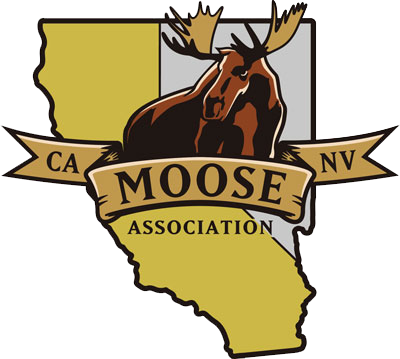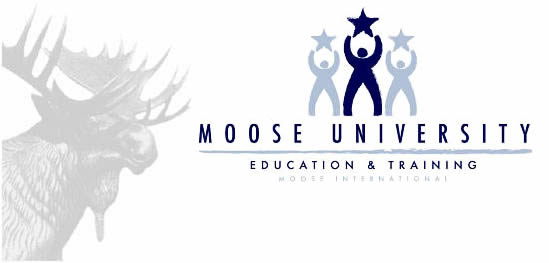ATTENTION
INFORMATION REF: 2 DAYS HANDS ON TECHNICAL TRAINING
Released From Moose International
The following information has been released by Moose International for those that are going to participate in a 2HOTT Class.
QUALIFIED TRAINERS
The following Brothers and Co-workers are trainers qualified by Moose International to help you:
Administrator School
Cheryl D Volden, Oxnard,
Phone: 805-338-1305
Debi Price, Las Vegas, NV
Phone: 801-739-6211
Lodge Leadership
Cheryl D Volden, Oxnard,
Phone: 805-338-1305
Dave Benner, Yuba City,
Phone: 530-713-2325
Ed Stone, Beaumont,
Phone: 951-428-9590
Jim Waggoner, Mira Mesa,
Phone: 619-993-3066
Chad Watson, San Diego,
Phone: 619-993-4940
Roddy Myers, Yuba City,
Phone: 530-300-8503
Moose Technical (2 HOTT)
Ann Cooke, Monterey,
Phone: 831-277-4320
Cheryl D Volden, Oxnard,
Phone: 805-338-1305
Cindy Raslavsky, Las Vegas, NV,
Phone: 702-622-9580
Debbie Berry, El Monte,
Phone: 626-252-3407
Debi Price, Las Vegas, NV
Phone: 801-739-6211
Deborah Story, Gardena,
Phone: 301-704-7669
Denise Angeles, Las Vegas, NV,
Phone: 805-312-4727
Mary Hagens, Fairfield,
Phone: 707-330-4392
Shirley McKenzie, Red Bluff,
Phone: 530-200-4170
Toni Sherman, Sonora,
Phone: 209-532-7973
Moose Legion Educational Conference (MLEC)
Art Sorem, Redondo Beach,
Phone: 310-213-0004
Chuck Barber, Sunnyvale,
Phone: 650-279-5310
Ed Stone, Beaumont,
Phone: 951-428-9590
James Waggoner, Mira Mesa,
Phone: 619-993-3066
Joe Henderson, Placerville,
Phone: 530-903-9444
Mark Klein, Westlake Village,
Phone: 805-630-4676
Robert Interbieten, Yerington, NV,
Phone: 775-771-4438
Roddy Myers, Yuba City,
Phone: 530-300-8503
IMPORTANT FRATERNAL INFORMATION FOR LOOM & WOTM
Please ensure that Administrators and Recorders are aware that if the member’s status in LCL is “Dropped”, dues are to be collected by the lodge or chapter and deposited to their general fund. The member’s dues payment must be reported by transmitting them as a reinstatement (code #3) in LCL.Net.
Dues payments for members whose status is “Active” or “Expired” must be submit to Moose International Dues Processing Center, 8338 Innovation Way, Chicago, IL, 60682-0083. Please include the members Moose ID#, Unit# and the word “Dues” on the face of these checks.
Darrell O’Brien
Director, Membership
Most lodges do not understand the difference between an employee and a member. The purpose of this e-mail is to clarify the distinction between members and guests.
Section 50.2 of the General Laws and the Private Policy allow good standing “members” to sponsor guests into a lodge – not employees. There is nothing in our General Laws allowing an “employee” to sponsor someone into a lodge as a guest.
When a member is in the lodge on the clock and receiving pay as an employee, he or she is in the lodge as an employee – not as a member. The status of “employee” gives the person certain legal rights that members of the House Committee should never forget. You cannot treat an employee in the same manner you treat a member.
Horse playing, joke telling and other conduct permissible with a member could have devastating ramifications if done with an employee (even if that employee is a member). Unfortunately, the definition of employee could also encompass volunteers receiving tips, free meals, etc., because receiving such compensation could classify them as an employee.
Anyone receiving tips, free meals, drinks, etc. for volunteering could be classified as a paid employee and the compensation if over a minimum amount is reportable to taxing authorities. For instance, a member receiving drink chips and/or meals a couple of times a week worth $20 for volunteering would receive over $1,000 compensation by years end (not including tips received), which is far above the minimum reporting amount. If the lodge gets audited and this practice is discovered (which has happened), the penalties and interest could far exceed the taxes. Although I am unaware of anyone being criminally charged, it could also possibly be a criminal violation to fail to report this income to taxing authorities.
Please remember that our fraternal laws apply to members – not employees. Bartenders/employees should not be signing in guests while working even if they are a member. Perhaps these are matters worthy of a comment or two to the Administrators and/or Governors at your upcoming association convention.
General Governor
TRAINING MATTERS
Training for Prevention
TRAINING & ATTITUDE MAKE THE DIFFERENCE:
CONGRATULATIONS TO THOSE MOOSE LODGES throughout the Fraternity for your earnest efforts to comply with the Alcohol Server Training Program. The effort put forth by all will be both impressive and advantageous when insurance renewal begins for the ”07-08” fiscal year. It must be the commitment of the entire Fraternity to make sure that all Servers are trained when serving alcohol in the Lodge Social Quarters as we go forward in 2007 and beyond.
RISK MANAGEMENT Director, Brad Costello would like to remind Administrators to be aware of the expiration date on their Servers Certification Card, which they receive after completing their training. It is critical that Administrators keep track of expired cards because it could affect the entire Risk Pool program if an incident occurs with an untrained Server. It is therefore important to make sure that copies of all Server cards be kept in the Lodge office in the event that they need to be produced at any point time.
As a Fraternity, we have made a commitment under our Risk Pool Insurance to comply with this program and the Risk Department thanks all the Lodges who have done so.
TRAINING WILL REDUCE RISK
IMPORTANT TRAINING TOPICS FOR LODGES Alcohol Server
Training: Now a mandatory Lodge training program for all Servers. Regardless of whatever program is used, Server must be re-certified within 3 years from the date of theiroriginal training.
Kitchen Training: Thorough training instruction should be given to any person, paid or volunteer on all kitchen equipment and appliances and no Lodge should allow minor children to work in their kitchen at any time.
Heavy lifting: Proper lifting techniques are also very important because injuries from improper lifting happen frequently when employees/volunteers lift items beyond their capability and do not take time to ask for help.
Hazardous Material/Chemicals: This includes flammable substances such as propane, paint, gasoline and heating oil. Other items could also be cleaning substances that could be toxic or harmful to breath or cause a skin rash. Training and instruction should be done for all employees regarding the dangers of these substances.
For help with training go to our Moose website, Members Only then our Department, Risk Management. The C A P Program Guide Booklet can assist
CONTINUOUS ACCIDENT PREVENTION MESSAGE
Periodically I will be sending you information concerning safety in your Lodges. Please, pass this information on to ALL the Lodges in your district in hopes accidents will be prevented.
SAFETY SENSE AND REGULAR MAINTENANCE HELP PREVENT ACCIDENTS
ALL Moose Members have an obligation to get involved with Lodge Safety. Becoming an “active” member can make all the difference when it comes to safety and well being for all Moose members and guests within the Fraternity.
ACTIVE participation is the “key” to reducing accidents in all areas of Lodge operation from Administrators to Treasurers, Trustees,
Board Members and Social Quarters Managers. Administrators should pave the way by example and delegate weekly safety checks and training for all staff and volunteers. OVERALL, there has been a
slight decrease in the frequency. REMEMBER…THERE IS ALWAYS SAFETY IN NUMBERS!
Administrators Should Stress Safety At Monthly Meetings. It is a great idea to stress safety during monthly Lodge meetings when there may be many members present. This can create the potential for more member participation motivating more members to volunteer.
Taking Immediate Action Is The Best Plan. Taking prompt action on all safety issues is the best approach toward improving claim experience. Many times we leave small safety issues unattended, which develop into bigger problems that may lead to accident or injury. Addressing safety issues immediately IS the best assurance you can have for prevention.
“GREAT TEAM MEMBERS'” EQUAL GREAT SAFETY!
Again, pass this on to your Lodges.
HOME AN LODGE HEATING SAFETY TIPS
As families look for ways to save money in tough economic times, there is an increased risk of carbon monoxide (CO) poisonings and fire deaths associated with the use of alternative heating and power sources. The U. S. Consumer Product Safety Commission (CPSC) is urging consumers to check all home heating systems from fireplaces to furnaces, including any back-up power systems. THIS INFORMATION COULD ALSO BE VITAL FOR LODGE HEATING UNITS SAFETY!
Heating systems were associated with an average of 32,900 fires and 200 fire deaths per year from 2004-2006. This includes local fixed heaters, portable heaters, central heating systems, and fireplaces and chimneys.
CO deaths have been on the rise since 1999. On average there were 181 unintentional non-fire deaths from carbon monoxide poisoning associated with consumer products per year from 2004-2006 compared to 123 from 1999-2001. Heating equipment and portable generators are among the top contributors to CO deaths.
Portable generator-related deaths have risen more than 400 percent in recent years from an average of about 16 deaths per year in 1999-2001 to 75 deaths per year in 2004-2006. In 2004-2006, 41 percent of consumer product-related CO deaths (an average of about 75 deaths annually) were generator-related and 35 percent (an average of 63 deaths per year) were heating system-related.
To prevent CO poisoning tragedies from occurring, CPSC urges consumers to:
- Schedule a yearly professional inspection of all fuel-burning home heating systems, including furnaces, boilers, fireplaces, wood stoves, water heaters, chimneys, flues and vents.
- As a second line of defense, install carbon monoxide alarms meeting the requirements of UL 2034 Single and Multiple Station Carbon Monoxide Alarms or CSA 6.19 Residential Carbon Monoxide Alarming Devices in the home. Make sure the batteries are fresh and working. Replace the batteries annually at the spring or autumn time changes.
- Activate the test button on the CO alarm monthly to ensure proper operation.
- NEVER operate a portable gasoline-powered generator in an enclosed space such as a garage, shed or crawlspace, or in the home.
- Keep portable generators as far away from the home as possible — away from open doors, windows or vents that could allow deadly carbon monoxide into the home.
- Use a space heater that has been tested to the latest safety standards and certified by a nationally-recognized testing laboratory. These heaters will have the most up-to-date safety features. An unvented gas space heater that meets current safety standards will shut off if oxygen levels fall too low.
- Do not use portable propane space heaters indoors or in any confined space unless they are specifically designed for indoor use. Always follow the manufacturer’s directions for proper use.
- Never use gas or electric stoves to heat the home. They are not intended for that purpose and can pose a CO or fire hazard.
- CPSC also urges consumers to follow these home heating safety tips to prevent fires:
- Place space heaters on a level, hard, and nonflammable surface such as a ceramic tile floor, not on rugs or carpets. Keep the heater at least three feet from bedding, drapes, furniture, and other flammable materials, and keep out of the flow of foot traffic. Keep children and pets away from space heaters.
- To prevent the risk of fire, NEVER leave a space heater on when you go to sleep or place a space heater close to any sleeping person. Turn the heater off if you leave the area.
- Never use gasoline in a kerosene space heater. Even small amounts of gasoline mixed with kerosene can increase the risk of a fire.
- Have fireplace flues and chimneys inspected for leakage and blockage by creosote or debris.
- Open the fireplace damper before lighting a fire and keep it open until the ashes are cool. An open damper may help prevent build-up of poisonous gases inside the home.
- Store fireplace ashes in a fire-resistant container and cover it with a lid. Keep the container outdoors and away from combustibles. Dispose of ashes carefully keeping them away from combustibles, dry leaves or trash.



